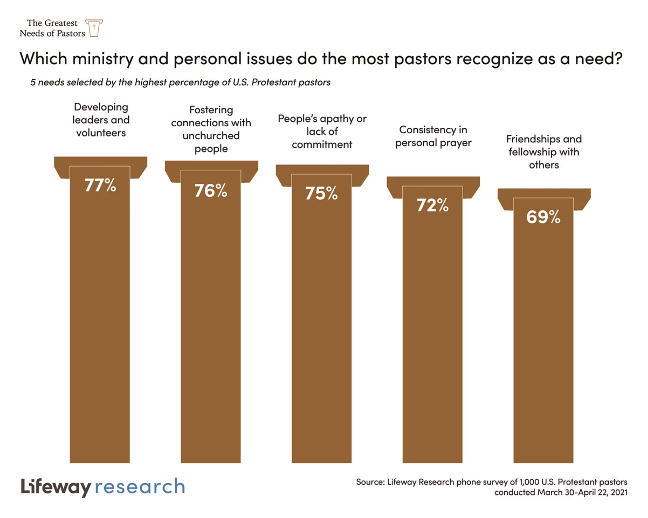

As we unpack our nativity scenes from eleven months of storage, placing Mary next to the manger is as normal as singing Christmas carols or watching Buddy the Elf eat gum off the subway railing.
For many of us, though, Mary never leaves the manger’s side. She goes back in storage with the wise men and reappears next year. While Mary serves the miraculous and cosmic role of birthing the Messiah, she is also a faithful witness of what it looks like to model Christ’s action of mediating between God and humanity—telling others what God is like and bringing him their concerns.
You may be thinking, “Wait, isn’t Jesus the only one who mediates between God and humanity?” And that instinct would be right. I’m not talking about mediating salvation between God and people—that’s something that only Jesus in his life, death, and resurrection has accomplished. What I am saying is that, like the prophets in the Old Testament standing as a go-between by proclaiming God’s message to the people and representing the people’s requests to God, Mary shows us how to occupy the space between God and the world as a light that points people to God.
Before traveling to Bethlehem for Jesus’s birth, Mary visited her cousin, Elizabeth, who was also miraculously pregnant. Elizabeth recognized Mary’s unique role as the “mother of [her] Lord” (Luke 1:43) and pointed toward Mary’s faith that God would “fulfill what he has spoken to her” (Luke 1:45).
In response, Mary launched into her famous speech magnifying God’s character—the Magnificat. These ten verses are more than Mary simply responding to her situation with gratitude. Mary shares God’s words not only with Elizabeth but also with us as readers thousands of years later.
Many commentators say Mary’s speech falls in the genre of prophecy. In essence, a prophet served as a mediator between God and people to provide the people with revelation of who God is. Mary comments on her own “humble condition” (Luke 1:48) and how God exalts the “lowly” (Luke 1:52), like herself. By describing herself in these terms, Mary speaks to those who may similarly feel overlooked or unimportant—much like how the people of Israel likely felt at the time of Jesus’s birth. Mary says that God has “helped his servant Israel, remembering his mercy to Abraham and his descendants forever” (Luke 1:54–55) with Jesus’s birth announcement, reminding God’s people that he cares and acts on their behalf.
Through her speech, Mary stepped into the space between God and his people by proclaiming the good news that God’s “mercy is from generation to generation” (Luke 1:50) and that “he has scattered the proud . . . [and] toppled the mighty from their thrones” (Luke 1:51–52). She reminds us that God “has satisfied the hungry with good things and sent the rich away empty” (Luke 1:53). Her song reads like many of the psalms in the Old Testament that proclaim the character of God to people in desperate need.
Mary models how we should be little mediators of God’s presence on earth—declaring his good news to people who need to hear it.
The beginning of Jesus’s public ministry provides a stage for Mary to stand as a type of mediator outside of the Christmas story. Before Jesus began teaching and demonstrating his identity as Israel’s Messiah, he and his disciples were invited to a wedding Mary also attended. As John writes in John 2:1–12, the wine for the wedding in Cana ran out and presented the host family with a problem.
Running out of wine at a celebration in Ancient Near Eastern culture was a social faux pas that would have brought enormous shame on the host family. Seeing this risk and interceding on behalf of the wedding party, Mary went to Jesus with a request without a question, “They don’t have any wine” (John 2:3).
Not only did Mary initiate stepping in as an in-between for the wedding party, but she also went straight to the person she knew could act, revealing her faith. She saw a need and entrusted it to the person who could meet that need.
While Jesus’s response appears harsh (his calling Mary “woman” isn’t derogatory or dismissive as he uses the same word when speaking tenderly to her on the cross in John 19:26), Jesus explained that he was hesitant because he had not begun to reveal his identity as Messiah—which Mary presumably knew—to everyone.
Instead of feeling rejected, Mary reaffirmed her faith in her son by telling the servants to do whatever Jesus told them to do. Jesus may have chosen not to act and told the servants to stand by, but Mary accepted that possibility and left the decision in Jesus’s capable hands. In doing so, she communicated an important truth not only for the servants at the wedding but also for us reading the passage today—obey God regardless of what he calls you to do. Mary advocated for people who had nowhere else to go and instructed them on how they should respond to God’s command—much like how the church operates in the world today.
Maybe it is appropriate that we think of Mary most often during the Christmas season. Christmas often calls us to act in mediatory ways.
This may be someone’s first Christmas alone, and they need to hear from you that God sees them. Perhaps this Christmas someone received bad news and needs you to advocate for them on your knees in prayer. By imitating Mary as she imitates Christ, we can be God’s ambassadors, channeling his overpowering love for them.
Writer/Content Editor, RightNow Media
If you’re a decision-maker at your organization, request a free consultation to find out how RightNow Media can equip and inspire your people.
Not a decision-maker?
Tell your pastor about RightNow Media instead.


It’s easy to say we agree with the previous statement, but it’s harder to believe it. Many Christians start their workday and wonder if typing on a computer for the entire day is worth the trouble. Teachers struggle to see the value of the work they put into lesson plans, especially when their students do not listen. CEOs of Fortune 500 companies wonder if all the long hours in the office will fulfill their hopes and dreams. In every job sector, people love God but often do not know if God cares about their work.
Work can be challenging and stressful, but it does not have to feel meaningless. Since God cares about our work, we must look to him to understand why our work matters.
The first few pages of Scripture contain God’s perspective on creating the universe. One of the main topics that the first three chapters of Genesis address is work. In fact, over 60% of the verses in Genesis 1–3 say something about work. God labored for six days and then rested on the seventh. When God created humans, the first thing he told them to do was work (Genesis 1:26; 2:15).
Work has always been essential to God’s plan for the world and his people.
God also said all he created was good, which includes humanity and their work. But since the tragic introduction of sin into the world, recorded in Genesis 3, humanity has doubted the goodness of work.
Our labor had dignity before being distorted. So today, we need to see our work as a reflection of God’s goodness—the way God saw it in the beginning. We should not dread our nine to five or see it as a part of the Genesis 3 curse. When we do our jobs, we fulfill a part of our God-given purpose to create, cultivate, and care for the earth. God sees both the garbage truck driver and the astrophysicist and says their work is good.
Many may not know what a J bolt is, but there is a J bolt helping to secure the foundation of buildings all over the world. J bolts are small J-shaped pieces of metal used to secure concrete foundations and provide an anchor for building structures. They look small and insignificant, but they serve people in a major way every day.
Work is one of the J bolts of society. The jobs we do play an essential role in supporting and contributing to the economic and social foundations of our lives. Our work, like a J bolt, impacts people, even when our jobs might look or feel insignificant.
We can also see examples of how work serves people in the Bible. In Exodus 31:1–11, God chose people with specific skills to work with wood, metals, and cloth to provide the necessary tools for Israel’s daily worship. Because of their craftsmanship, God was glorified and God’s people had a place to worship God for generations.
The work we do plays a role in serving our world. Without it, many people would have unmet needs and miss out on the ways our job benefits society. We need godly businesspeople to ensure business transactions involve fairness and equality. We need plumbers to handle our sanitation issues before they become public health concerns. We need metalworkers to make J bolts so our buildings can stand firm. No matter what we do, our work matters because it serves others.
Christians can be tempted to think a vocation is only spiritual if it’s a ministry job. But being a pastor is not the only job that can impact the kingdom. The Great Commission from Matthew 28 tells us that God calls his people to go all over the world to share the good news of Jesus Christ. But if the church has any chance of reaching the world, pastors cannot be the only people who use their vocation as a platform for the gospel.
What better opportunity is there than going to work every day to share the Christian life with many who do not know Jesus? Colossians 4:3 encourages Christians to pray for “open doors” to spread the name of Christ. God can use us in our jobs to build his kingdom, whether we are a professional football player or a high school janitor.
When we look to God for why our work matters, we can see that our jobs have a God-given purpose. God created work and it is good. Our vocation can serve people and grow the kingdom of God. We can therefore approach our nine to five knowing that God cares about what we do and sees our work as significant—to him, his people, and the world.
Are you a business leader looking to invest in a personal care resource for your employees that can help them flourish in every area of life? RightNow Media @ Work, a library of on-demand video resources has a library of over 20,000 videos on topics from leadership and personal development to parenting and finances. Schedule a free demo today!


If you’re feeling overwhelmed and underequipped as a church leader, you’re not alone. With the influence of social media, changing cultural dynamics, and the impact of the COVID-19 pandemic, today’s pastors face unique challenges. According to recent studies, today’s pastors are struggling with everything from time management to trusting God. Lifeway Research spoke with more than 1,000 pastors about their greatest needs; five were most commonly mentioned:

At RightNow Media, our core value is “The mission of the church matters.” We are here to pray for, equip, and encourage church leaders in their ministry because healthy leaders are crucial to building healthy churches.
As a busy pastor, it can be hard to find time to equip your leaders and volunteers. While digital training can’t replace in-person experiences, it is an effective tool to develop your leaders outside of face-to-face trainings. RightNow Media has a library full of Interactive Training Content you can assign to your leaders to complete when it's convenient for them. Or, click here to learn how you can create your own Interactive Content.
The following blog post will help you learn about some of the fears and doubts your leaders and volunteers may be experiencing. You can share this article with your team to encourage them!
Jesus clearly calls us to “go and make disciples of all nations” (Matthew 28:19–20). But outreach ministry can take a backseat when we feel too busy with what’s going on inside the walls of our church.
Even if you don’t have a designated external outreach ministry, you can still foster connections with unchurched people. Read this blog post for practical ways you can begin to bridge the gap between your congregation and the unchurched.
We all want our churches to thrive, but many of our congregations struggle with attendance, recruiting volunteers, and keeping members engaged. There may be moments when you feel like one of the only people committed to the mission of your church. But no matter how you feel, God’s promises are true and he promises to never leave you or abandon you (Deuteronomy 31:6).
Read this blog post for an encouraging word on staying committed to the church even when you sense apathy in your congregation.
With the many responsibilities of shepherding others, pastors can unintentionally put their personal relationship with God on the backburner. In our desire to be self-sufficient, we often forget that we have a Father who hears our prayers and loves when we talk to him.
Reignite your passion for prayer with this practical blog post all about the gift of talking with your heavenly Father.
While church leaders often preach the need for Christian community, the perceived safety and comfort of isolation can tempt tired pastors. While it can be difficult to find people who understand the unique weight of spiritual leadership, community is worth pursuing for pastors in every stage of their ministry.
Set aside a few moments for self-reflection and to answer the questions in this blog post written specifically to pastors. Then, consider the opportunities in your life to connect with other church leaders.
It’s a challenging time to be a pastor, but current circumstances don’t nullify God’s promises. Listen to what God says through the prophet Isaiah:
Do not fear, for I have redeemed you; I have called you by your name; you are mine. When you pass through the waters, I will be with you, and the rivers will not overwhelm you. When you walk through the fire, you will not be scorched, and the flame will not burn you. (Isaiah 43:1–2)
No matter what difficulties you face as a church leader, God’s love for you is unwavering. His plans for you are good. His divine power has given you everything you need for a godly life (2 Peter 1:3).


The Christmas season is full of light, joy, and beauty. At the center of our celebrations and family traditions is a vulnerable baby in a feeding trough—Emmanuel, God with us. As Christmas approaches, the season of Advent offers us a chance to reflect on our savior, his purpose, and the surprising ways he invited people near to him.
To help you and your church reflect on the coming, or advent, of Christ, pastor Derwin Gray spent time with our team filming Advent, a five-part series exploring the ways the birth of Jesus changes everything. We caught up with Derwin after he preached at the RightNow Conference to hear about his experience making this series and his hope for everyone who watches it.
Derwin: Filming with the RightNow Media team is not only fun—because they are all hilarious and we have good chemistry because they are great people—but also, they have professional expertise. The way they are able to take content and match it with locations and editing encourages me in my faith. I am excited about this Advent series because they make me better than I am!
Derwin: The biggest thing I learned about Advent was a greater awareness of God’s heart. Advent means “arriving” or “coming.” In the beginning, the Father had already determined that Jesus was going to come and reconcile all things to himself. The way he goes about that is beautiful, mysterious, life-giving, and powerful.
Derwin: I want them walking with Jesus more. Jesus is not just a Sunday friend; he is an all-week, all-the-time companion. He’s Lord. He’s Master.
The beauty of Advent is that we see the beauty and vulnerability of God entering into humanity in a fragile state and form. We see God use people to do incredible things! You don’t have to be the biggest or the best. Mary was just a teenager. Joseph was just some guy! God takes ordinary people and does extraordinary things.
So, I want people to be overwhelmed with God’s grace and the gift of his Son this Christmas.


Yes, it is bright, merry, joyful, and the most wonderful time of the year. A season to celebrate Emmanuel, God with us. But it can also be the most difficult time of year for those who are lonely, are walking through the loss of a loved one, or have contentious relationships with their family. Even some of our most treasured Christmas songs are complicated. “I’ll Be Home for Christmas” was written from the point of view of World War II soldiers, dreaming of home while living in the horrors of war, while Judy Garland’s “Have Yourself a Merry Little Christmas” resigns to “muddle through, somehow,” hoping her troubles will be gone next year. That’s not very merry or bright.
Even so, Andy Williams was right: Christmas is the most wonderful time of the year. But the contrast of love, joy, peace, and hope with the reality of the wounds, wars, and worldliness of our daily lives can be jarring. How should we, the church, respond to the Christmas season in light of the pain in the world?
One solution is to ignore the darkness that surrounds us, to not talk about the news and ignore the struggles of the holidays. But that won’t do, especially for the people commanded to be light in the darkness (Matthew 5:14). We don’t have the option of hiding under a bushel to preserve our peace.
Another response would be to reject the joy of Christmas in an effort to highlight the necessary needs of the world, becoming cynical toward the ignorantly holly-jolly attitude of the season. Joylessness is not an appealing option, especially for those of us who love the decorations and music of Christmas. But a muted, honest response may feel like the only way to address the real hurt in the world around us. Is this season about Christ or the excess of materialism? Where is the joy we sing about for the starving in Yemen? Where is the peace that is heralded through the speakers of our shopping centers? Why is it here but not in Ukraine or Uvalde? In this world, Christmas can feel like glossy wrapping paper around a lump of coal. Like Frank Sinatra sings in the too-often-ignored carol “I Heard the Bells on Christmas Day”:
Yes, the world is broken and can appear hopelessly irreparable. And, yes, our cultural values have infiltrated Christmas. But cynicism towards Christmas isn’t a path to wholeness. Quite the contrary: our only hope in life or death is that baby in the manger, the “reason for the season.” The world needs our celebration of Jesus. We can’t solve a crisis on the other side of the world, but we can share the joy of Jesus’s birth with everyone we meet.
So, we cannot avoid the complications of Christmas, but we also cannot reject the happiness of the holiday. We walk a third path, the way of Christ, of intermingled joy and sorrow. We groan and weep because of sin and its effects but we can do nothing but rejoice in the hope we have found in Christ (Romans 8:22–25; Philippians 4:4–5).
Just think about the way we celebrate Christmas. In the coldest season of the year, when darkness overwhelms our non-working hours, we emblazon our homes with lights and warm ourselves with hot chocolate. We brave the winter weather to be near to family, bearing gifts to (what can seem like) everyone we know. We focus on giving, serving, and compassion toward the needy in our communities. We defy the present darkness to proclaim our hope in Jesus (John 1:5). That is the Christian life!
The spirit of Christmas is neither avoidant nor despairing; it is defiantly hopeful. We are caught between the two comings of Christ and choose to live in the assurance of the second while acknowledging that we can do more to spread light of his first. Yes, we are awash with pain, loneliness, grief, war, poverty, and illness, but it will not always be that way. We can stand where and sing triumphantly with Frank Sinatra into the wintery night:
Merry Christmas. Come, Lord Jesus.


Romantic love steps into the spotlight in mid-February, but is that the type of love behind the holiday? A closer look at history reveals that romance has nothing to do with the man behind the hearts and chocolates. Rather, the love of St. Valentine points us all to the love of Christ.
The origin of Valentine’s Day traces back to the historical figure St. Valentine. However, the legend of this saint more closely resembles Paul Bunyan than George Washington. From what we know about church history, there were two significant men named Valentine in the third century—a priest in Rome and a bishop in Terni, Italy—with miraculous stories attached to their names. Because of the passage of time, historians aren’t sure which events should be attributed to whom and tend to combine the two figures into one man.
Some sources say Valentine secretly married couples against imperial military policy. Others comment that he healed a blind woman in front of the imperial court, evidencing the power of the gospel to skeptical eyes. Regardless of what is true about the life of the Valentines, there is one historically reliable event historians agree that they share: each was executed for his faith under intense Roman persecution. All we can really know about Valentine is that he served as a Christian leader who gave his life for his faith. That story doesn’t make for a cute Valentine’s Day card.
The celebration of Valentine’s Day that we know today didn’t begin until one thousand years after Valentine died. English poet Geoffrey Chaucer mentioned in his poem Parliament of Foules that birds choose their mate “halfway through the second month of the year.” Since that moment, Valentine’s Day has been associated with passionate courtship rather than remembering the life of a saint in service to Jesus.
But some of you may be thinking: “Why should we care about remembering saints from the past at all?” Looking to faithful men and women of the past who’ve followed Jesus can renew our love for God and inspire us to emulate their devotion.
Saints from church history are part of our “great cloud of witnesses” the author of Hebrews writes about in Hebrews 11 and 12. The example of Christians both present and historic should motivate us to action, saying, “Therefore . . . let us lay aside every hindrance and the sin that so easily ensnares us . . . keeping our eyes on Jesus.”
So, consider Valentine. If all we can know with certainty about his life is that he was a faithful pastor under intense persecution, yet so committed to Jesus that he didn’t renounce his faith when threatened with death, that alone should be celebrated and emulated.
This Valentine’s Day, as we focus on romantic love through food, chocolate, or cards (no matter how cheesy they may be), let’s also model Valentine’s self-sacrificial love for God and others as a leader and a martyr for the faith. While we probably won’t be called to die for our faith, we are called to heed Jesus’s martyr-like words in Matthew 16:24–25: “If anyone wants to follow after me, let him deny himself, take up his cross, and follow me. For whoever wants to save his life will lose it, but whoever loses his life because of me will find it.”
Valentine’s Day should remind us that true love does exist—“No one has greater love than this: to lay down his life for his friends” (John 15:13).


Summertime can feel like an obstacle to overcome for parents of school-aged kids. How do we keep our kids busy without over-scheduling them? How do we manage our own responsibilities while also ensuring our children’s minds don’t wither away from hours of screen time? Can anything keep kids interested, occupied, productive, and even learning during summer vacation?
Remember playdough, finger paint, and crayons? Toddler days were messy! But while the medium may (or may not) change, our kids’ creativity doesn’t. Let’s occupy their busy minds by filling their busy hands with opportunities to create. Adapt the following ideas to the ages and abilities of your children.
Set up a dedicated spot in your home—a table, nook, or entire room if you have it—for artistic endeavors stocked with a supply of paper, pencils, paint, and other creative tools. Name a particular hour of your day as “art class” and explore a passion or talent your child may possess. And if you just can’t handle glitter, paint, or modeling clay, find a friend who can and trade playdates with them. When my kids were between five and twelve years old, I always loved taking them to my friend Susie, who, as an actual artist, was happy for them to join her kids in making a huge mess on her kitchen table. They came home with glittery hair, colorful smudges, and shining eyes as they showed me their newest handmade treasures.
Books are the doorway to the future, exercising children’s imaginations, thinking, comprehension skills, and creativity. Stories help them understand the world and imagine a new world in which they can play a part. The power of reading inspired Dolly Parton, for instance, to create her Imagination Library, which sends a book per month to children from birth to five years old.
While babies are napping, toddlers can enjoy “rest time” with books until they doze off. Older kids can settle down during the heat of the day with a reading hour. Or jazz up your routine with a weekly trip to the library where they can discover new stories and foster a lifelong habit of reading.
Begin with the best book in the world, the Bible. A short time reading God’s Word will start every day with pure goodness. Don’t make it complicated—even opening your physical Bible and then retelling the story in your own words teaches your children the value of hearing from God every day. Let them participate and help you as they are able. Maybe have them draw a picture depicting something from the story that day.
Once they start reading, many children begin dramatizing the stories they love. Do your kids enjoy imitating or quoting their favorite characters and scenes? Clean out your closets and offer your rejects or old favorites to a costume bin. Encourage the kids to act out their morning Bible stories, write screenplays, get into character, and become someone new on stage. Cheer on your cotton ball-bearded Moses and blue sash-draped Mary. Ooh and aah when “Jesus” multiplies the cheese and crackers. Always say yes when they ask if you want to watch.
Reading often leads to writing. Keep old school notebooks from the recycle bin, tear out the used pages, and reuse what’s left as “dreaming and drafting” notebooks. Let your kids’ creative instincts run wild! Don’t worry about penmanship or grammar. When they feel they’ve completed a poem or short story and are ready to share, help them re-write it neatly or even type it into the computer (we can’t ignore sneaking in easy learning). Print out a final version to share with friends and family. Celebrate your child’s imagination and hard work.
Storytelling takes many forms, and video is easily the most popular type of media right now. Disney, for example, rules the screens in many households. The kids will ask to watch their favorite episodes or movies all day long, and we are often tempted to let them vegetate in front of the screen. But why not put the camera—or your iPhone—into their hands instead? Using free apps such as iMovie or InShot, young aspiring producers can learn basic editing skills for photography and video. Movie night can take on a whole new angle.
Let’s encourage our kids to tell stories that reflect their faith and God’s character. The original kids’ series The Creators, a product of the RightNow Media video production team, tells the story of a group of friends who join forces to create films that are “meaningful, virtuous, and good.” The Creators weaves biblical truths into engaging stories with humor and the right dose of seriousness. Perhaps a short time in front of a show will inspire your kids to produce their own series!
When God created humans, he made us in his image (Genesis 1:27). That means we are made to be creators too—it’s part of our DNA and our purpose. Who says we have to wait until we are adults to make wonderful things?


Jesus’s resurrection, as “O Holy Night” says, is the breaking of a “new and glorious morn.” That hymn, in fact, bears great significance for us this Easter season. In its first few lines, we find incredible hope:
“O holy night, the stars are brightly shining
It is the night of our dear savior’s birth.
Long lay the world in sin and error pining,
Till he appeared and the soul felt its worth.
The thrill of hope, the weary world rejoices,
For yonder breaks a new and glorious morn.”
Jesus’s birth held the promise of a new hope for those who were there to see it. Joseph and Mary and the shepherds were certain of the significance of the child laying in that borrowed feeding trough (Luke 2:7). The “Savior . . . who is the Messiah, the Lord” was “born for [them]” (Luke 2:11, CSB).
Thirty-three years later, the “new and glorious morn” was replaced with hopeless mourning. Jesus’s lifeless, broken body was being placed in a borrowed tomb, and the holiness of that first night was being called into question. The stars that shined so “brightly” at his coming were now dimmed with his apparent departure. The joy of the weary world gave way to deep, guttural groans of lament.
In the Garden of Eden, Adam and Eve chose to pluck a fruit that they weren’t yet allowed to harvest, and the thorny consequences of that first sin affect us to this day. With one ill-advised bite, the garden became a graveyard that spread death around the globe.
In John’s gospel, we first meet the resurrected Jesus in a graveyard outside the tomb he had once occupied. Mary, soaking the ground outside the tomb with her tears, hears the voice of someone behind her, presuming him to be the gardener.
What’s a gardener doing in a graveyard before sunrise?
Mary’s assumption about the man in the garden, who we know is Jesus, points us to a deeper truth. Jesus, beginning with his death and resurrection, is turning a graveyard into a garden, undoing the curse of sin. He is inaugurating and cultivating the new creation. He is resurrecting this death-soaked world.
The world now has a reason to rejoice.
We celebrate Easter because at the resurrection of Jesus—the new and better gardener—the world is in bloom again. We wear bright colors, sing resurrection hymns, and feast with family and friends because we carry with us the thrill of hope, for “He is risen! He is risen, indeed!”
We couldn’t sing “O Holy Night” without the empty tomb of resurrection morning. The “night of our dear savior’s birth,” would be like any other night if not for the thrilling refrain: “He is risen! He is risen, indeed!”
If you’re interested in learning more about the life of Jesus of Nazareth and the impact of his ministry, check out Journey with Jesus with Dr. Tony Evans, Chrystal Evans Hurst, and Priscilla Shirer.


Since Jesus left the disciples, we have carried the gospel across the globe. But, when we think of how to connect with unchurched people in our community, we can be left scratching our heads.
Was it always this hard? Do we need to make our churches more relevant, more trendy, more comfortable? We feel like we’re doing all the right things but we aren’t seeing results—what are we missing?
It can be disheartening to go through seasons where we aren’t seeing people come to Christ. We can feel stuck or behind. It can be tempting to think that we have to try something drastic to introduce more people to Jesus. But when we think about reaching the unchurched—people who have no experience with or interest in either the church or Christ—we don’t need to reinvent the wheel. We simply need to do what Christians have always done with a strategy that best fits our context.
In Bible study, we all know context is king. If you don’t know the context of a passage, you will probably miss the point. The same holds true for your church. God has placed you (a unique pastor) in your church (a unique people) in a unique place. Your position is purposeful and should define everything from the sermons you preach to the sort of programs your church offers.
To connect with the unchurched, start by thinking through your unique context—the things that make your mission field and position unique. These questions can get you started:
No matter how you answer these questions, starting with God’s unique design for your church will give you an idea of his direction for your church. For example, if non-Christians in your community are unlikely to go to church on Sunday, think about how you can empower your people to befriend their neighbors or to make your small groups open to visitors. Or, if your church is downtown but speaks the language of the suburbs, consider how you might adapt to relate to the people next door.
As you figure out your context, your creativity will spark. You will think of new events, sermon series, or ministries that could help you connect with the unchurched. But, as our culture changes, our posture also needs to adjust. For decades, the church has operated on a “come and see” model. People were willing to go to church or check out weekly ministries because the church was broadly seen as trustworthy and needed. Today, that is not always the case.
Unlike in year’s past, people today are more likely to think organized religion isn’t important. According to a 2019 Gallup study, only 36% of Americans have a high level of confidence in the church or organized religion, an all-time low. At the same time, 29% of Americans have little or no confidence in the church, an all-time high. In other words, we should assume that the people around us are skeptical of the church, even if they claim Christ.
So what do we do? A Sunday service may attract a handful of curious unchurched people. But a mobilized congregation of purposeful, Christlike friends can reach dozens of neighborhoods, workplaces, coffee shops, and grocery stores every day. Our congregations can reach more unchurched people in a day than we could with dozens of well-crafted sermons.
The attractional model has passed its prime. It is useful in some areas, but less so every year. To connect with the unchurched, our model for ministry needs to turn outward, shifting from a “come and see” to a “go and tell” mentality. For some of us, we may just need a change in our language, speaking to the specific concerns and questions of our culture. For others, we may need to fundamentally alter the way we do ministry.
There are many reasons why the unchurched may not be attracted to a church service or event, but there is nothing stopping us from going to them. Everywhere you go, someone needs Jesus: your neighbors, coworkers, bank tellers, and mail carriers. God has placed you in their path; trust him and what he can do in their lives.
Connecting with the unchurched is not about marketing strategies, trendier social media accounts, or more relevant sermon illustrations. None of those things redeem sinners. Only God can change a person’s heart. Our responsibility is to faithfully make disciples wherever and whenever God gives us the chance.
To summarize the Great Commission: go, baptize, teach.


But despite our best intentions to engage with God every day, many of us struggle to do so. According to The American Bible Society, 181 million Americans opened a Bible in 2021. Of those 181 million people . . .
If you have struggles, doubts, or fears when it comes to engaging with God’s Word, you are not alone. Millions of Christians desire to spend more time with God, but don’t know how.
So, how can we spend daily time with God when obstacles get in our way? To answer that question, we’ll start by digging into what God’s Word says about spending time with him.
Spending time with God isn’t just something we should do for him—it’s something he wants to do with us. We serve a personal, caring God who invites us to come to him for rest (Matthew 11:28–30).
If we approach God with a humble heart, we have freedom in the details of how we engage with him. James 4:8 says, “Draw near to God, and he will draw near to you. Cleanse your hands, sinners, and purify your hearts, you double-minded.” God cares more about our heart posture than our method of relating to him.
Starting a new habit is overwhelming when we try to do it on our own. However, when we depend on God for help, we are empowered to change by the power of the Holy Spirit. Romans 12:1–2 encourages Christians to surrender to God’s renewing sanctification that will help us look more like him. We don’t need self-help; we need to depend on God for true transformation.
Let’s get practical about how we can spend time with God regularly in 2022. There will be some reflection prompts in the following section, so make sure you have somewhere to record your answers.
There’s a big difference between saying to yourself, “I’ll spend time with God at some point,” and “I will spend thirty minutes with God at [time] and [place].” The clearer your plan, the more likely you are to make it happen. Take a moment to write down your plan.
Proverbs 15:22 states, “Plans fail when there is no counsel, but with many advisors they succeed.” One of the best tools we have for habit change is the accountability and support of one another. If you want to spend more time with God, it will be helpful to tell trusted friends so they can keep you accountable. Brainstorm a list of possible accountability partners and plan how you will stay accountable to them.
Think of the things you do every single day and ponder how you could integrate God’s Word into those pre-existing routines. For example, if you usually watch TV before bed, try putting your Bible on your bedside table and reading before you go to sleep. If you’re in the habit of listening to the news on your morning commute, try listening to worship music or a sermon. The options are endless. List three things you do every single day and brainstorm ways to invite Jesus into those routines.
Spending time with God doesn’t have to be a chore. You don’t have to do the same thing every day. Remember, God cares more about our heart posture than our method of relating to him. You can switch up your routine by listening to a Christian podcast or watching a Bible study video. RightNow Media has a vast library of biblical videos you can use as a starting point for your devotional time. These videos can help you better understand Scripture, live by biblical values, and learn to share your faith with others.
You can also browse our Men’s, Women’s, Youth, and Kids libraries to discover video content for everyone.
It takes time for habits to form and change, and the journey won’t be perfect. Instead of getting discouraged by your struggles and slip-ups, use them as opportunities to grow closer to God. Remember, he wants to spend time with you. Whether you’re reading the Bible, watching a RightNow Media video, or journaling your prayers to God, each interaction with him will sanctify you to think, act, and love more like Jesus.
.jpg)

Can we just skip the first seventeen verses of Matthew? The real story of Jesus starts when Joseph struggles with Mary’s news that she’s expecting a baby that isn’t his. At Christmastime, we want to read about dreams and angels and a baby’s birth, not a long list of “begats.”
Right?
Actually, no. Biblical authors always write with purpose. During this Advent season, as we anticipate the second coming of Jesus by contemplating his first coming, let’s consider what Matthew is teaching us through the orderly genealogy.
Including Jesus’s ancestry proves he was born specifically into the family of David. By tracing a direct line from David to Jeconiah to Joseph, Matthew demonstrates that Jesus was a legitimate son of David, qualified to become the future king of Israel.
The names Matthew includes are also important to understanding Jesus. Readers can go back to the Old Testament to learn more about each ancestor mentioned. Careful readers will notice that among forty-two generations in Matthew’s list, five included the mother along with the father. We are meant to note those breaks in his pattern and explore why their stories might be significant.
“Judah fathered Perez and Zerah by Tamar . . .” (Matthew 1:3)
How do you preach a family-friendly sermon about an abandoned daughter-in-law (Tamar) who seduced her father-in-law (Judah) and was declared righteous for doing it? It’s difficult, but knowing the tradition of Levirate Law helps: Judah was morally bound to provide a husband for Tamar after his two oldest sons died, but he refused. Tamar later pursued the justice owed to her by tricking (a very willing) Judah into sleeping with her. Though ready to condemn her apparent immorality, when Judah realized what had happened he admitted, “She is more righteous than I” (Genesis 38:26, NIV). She birthed twin sons, one of whom became a forefather to David and eventually Jesus. The woman often labeled “prostitute” was actually pursuing righteousness—and God blessed Israel through her.
“Salmon fathered Boaz by Rahab . . .” (Matthew 1:5)
The Canaanite prostitute had heard about the nation of Israel, and their mighty God, long before they prepared to overrun her city of Jericho (Joshua 2). When she realized Israelite spies were in her inn, she hid them from her own authorities and proclaimed her allegiance to Yahweh, “for the Lord your God is God in heaven above and on earth below” (Joshua 2:11). Turning her back on her own people and choosing God took guts. Rahab went from the ultimate outsider—an immoral foreigner—to becoming a leading insider, accepted as a faithful member of Judah. She eventually married their leader and became a noteworthy link in the Messianic line. Her courage and faith demonstrate for all of us that God restores the repentant and welcomes all who call on his name.
“Boaz fathered Obed by Ruth” (Matthew 1:5)
Another foreigner grafted into Jesus’s heritage, Ruth came to faith through grief. A Moabite woman, she married an Israelite man who died within ten years, leaving her childless. But her devotion to her grieving mother-in-law, Naomi, reflected the unconditional loving-kindness of Israel’s God whom she pledged to serve. Ruth is, above all, loyal, just as Yahweh is. She, too, married into the leading family of Judah and became a critical link in the long line to the savior.
“David fathered Solomon by Uriah’s wife . . .” (Matthew 1:6)
By avoiding her first name and instead referencing her by her murdered husband’s name (2 Samuel 11), Matthew highlights Bathsheba as a victim. The reference isn’t so much about her as it is about David’s actions toward her. Having abused his power as king and taken her to his bed, then murdering her husband after a failed attempt to cover up the resulting pregnancy, David is the sinner in this story. In his parable to David (2 Samuel 12:1–14), the prophet Nathan confronts him with his guilt, prompting David’s confession that he indeed had sinned. But God chose to fulfill his covenant with David despite David’s evil behavior, because he is a faithful God. Even our worst sins will not discourage him from his purposes. What about Bathsheba? God raised her up through her son Solomon, who became king after David thanks in part to her advocacy (1 Kings 1:15–35). By God’s grace she survived heartbreak and grew into a woman of strength and influence.
“. . . Mary, who gave birth to Jesus who is called the Messiah.” (Matthew 1:16)
The culmination of Jesus’s genealogy centers on his mother, Mary. The rest of chapter one (vv 18–25) assures readers that Mary’s child comes from God himself, that Jesus is the long-promised Emmanuel that Isaiah predicted (Isaiah 7:14). We can explore Mary’s point of view in Luke 2, where we see her willing submission to God’s challenging but amazing call on her life. She was Jesus’s first disciple, believing in him from the very beginning and faithful to stand with him through his life, death, resurrection, and ascension.
The Advent season gives us time to reflect on the first coming of our savior and the longing that God’s people felt as they waited for him. But he did come! Jesus was born—Emmanuel, “God with us”—as part of an extended family whom God worked through to bless the world. As we anticipate his second coming, Jesus’s family line can teach us much about how he wants us to live: faithful, obedient, loyal, courageous, repentant, forgiving.



